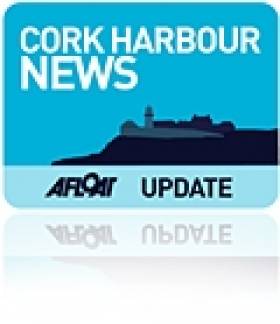Displaying items by tag: Lapps Quay
Ocean to City, Cork Harbour's annual maritime festival, takes place this year from 3-12 June.
The yearly celebration of Cork’s maritime history and its unique harbour begins on Friday 3 June when members of the public can voyage through the city by kayak, enjoy the thrill of a sea safari trip around Cork Harbour or follow TG4’s Padraig Ó Duinnín as he presents a historical walking tour and talk on rowing in Cork.
The highlight of the festival, An Rás Mór, takes place on Saturday 4 June and will see boats of all sizes row 15 nautical miles from Crosshaven via Cork Harbour, Monkstown and Blackrock before finishing at the boardwalk in Lapps Quay in Cork.
Around 400 Irish and International rowers will compete in a diverse range of vessels including dragon boats, kayaks, currachs, Celtic long boats, Cornish pilot gigs and Irish coastal rowing boats.
Sunday 5 June will see a special 10km kayak race through the city centre. The Irish Naval Service flagship LE Orla will also offer free public tours, while Meitheal Mara will host a guided voyage around the island of Cork by a variety of small craft.
To mark the Cork Harbour School and Heritage Trails Weekend from from 9-11 June, a series of events highlighting the attractions of Cork Harbour, both water and land based, will take place.
Activities include a summer school on the theme of 'recreation in a working port', which will be held in the Port of Cork on Friday 10 June and opened by Minister for the Marine Simon Coveney.
For more details visit www.oceantocity.com.






























































